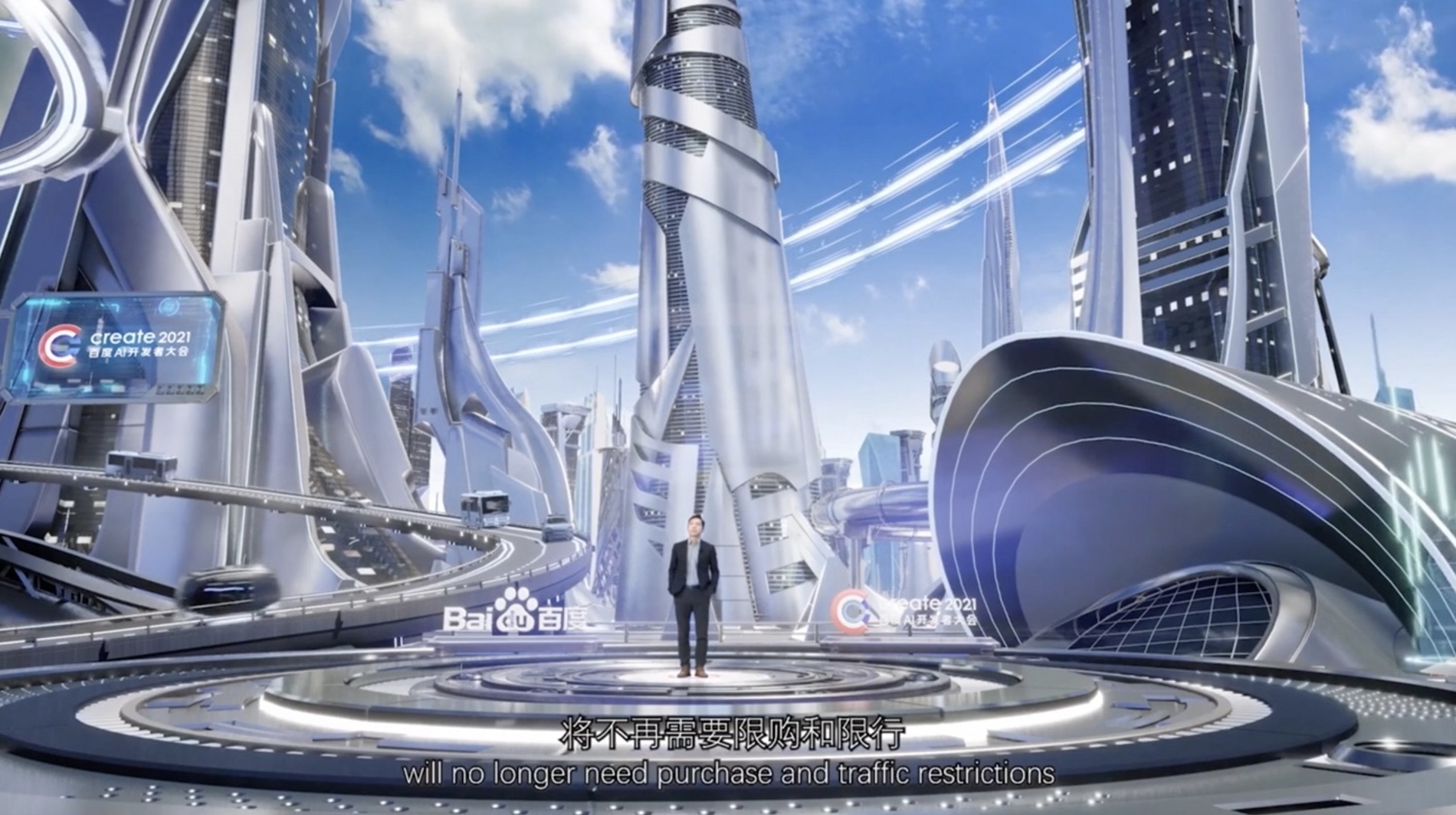Create 2021 of Baidu (Baidu AI Developer Conference) Automatic Driving Sub-forum “Collaborative Car Robots Connecting Technology and Scenarios” was held on the “Xilang” APP on December 29th, 2021. Baidu closely follows the web 3.0 trend. It is said that this is the first conference held in the Metaverse in China; it can accommodate 100,000 people for interactive screen sharing at the same time.
Apollo Product Overview
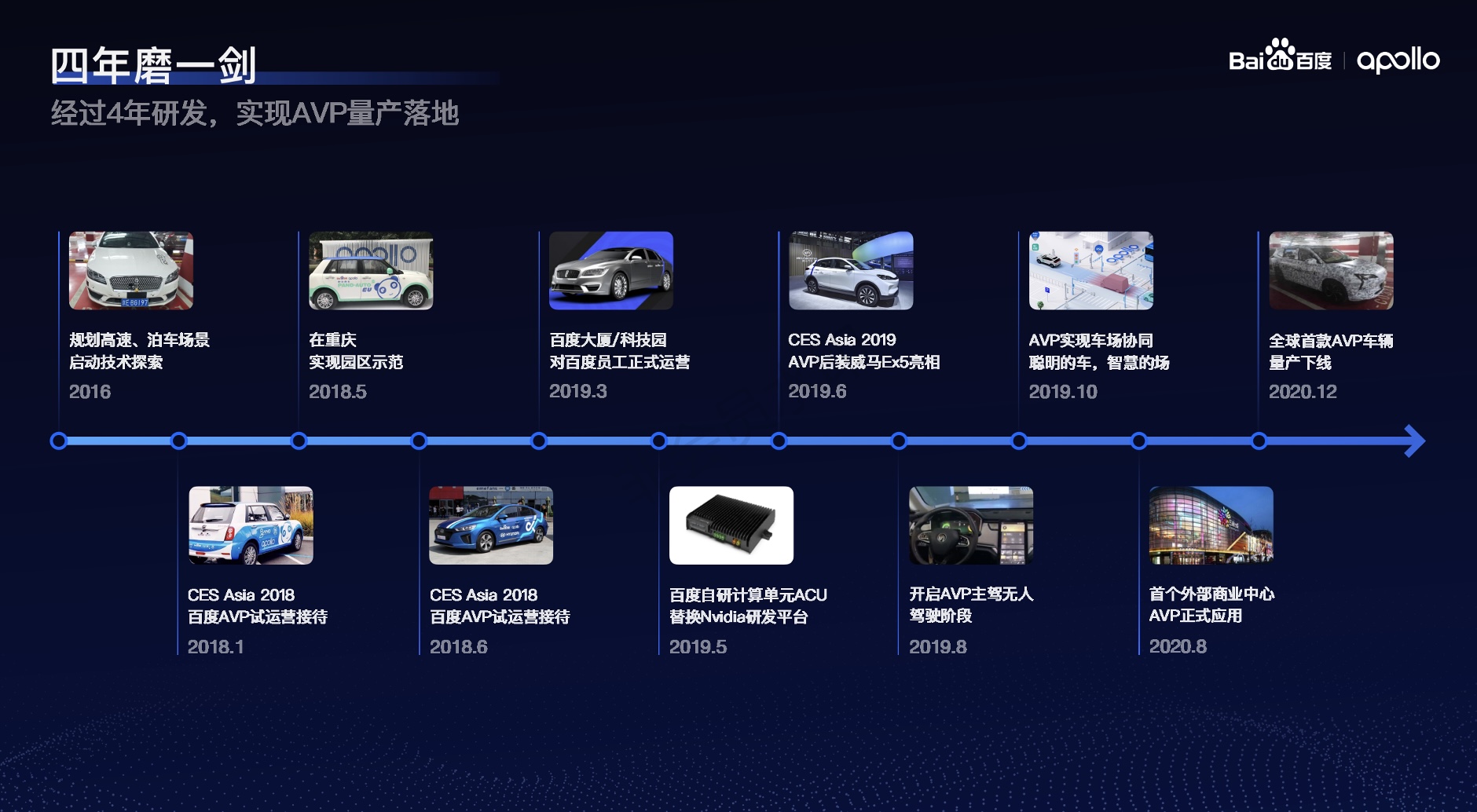
In the Automatic Driving Sub-forum, Baidu Apollo introduced three flagship business segments: AVP, ANP, and Xiaodu Carries.
AVP, Autonomous Valet Parking
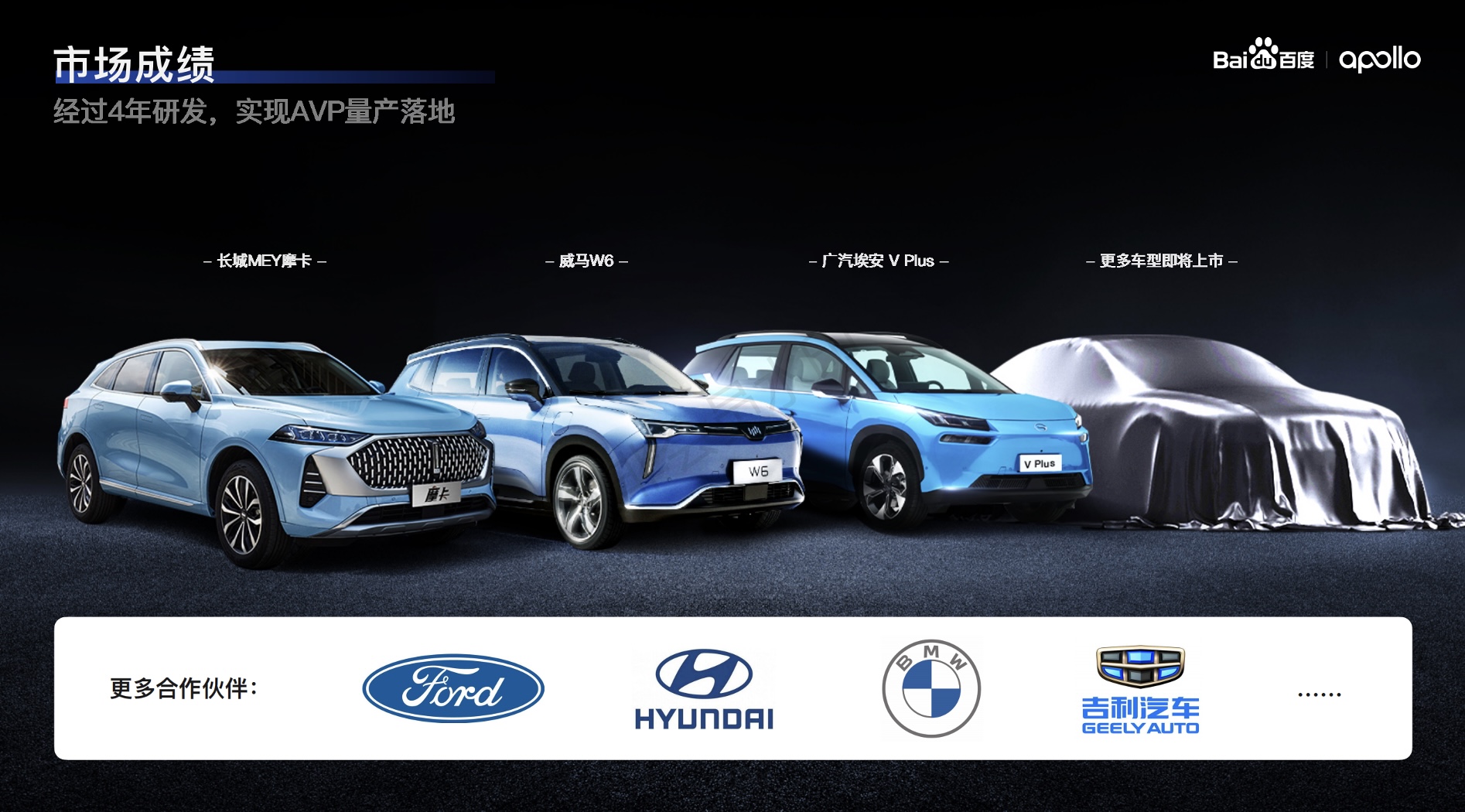
Baidu Apollo has launched the “L4 Automated Parking Technology” AVP system, which is adapted to passenger cars, aiming to solve complex parking scenarios, the shortage of hot resources in domestic commercial circles, and other unsolved problems.
AVP relies on equipment such as a single wide-angle (120°) camera, four ultra-wide-angle (190°) cameras, eight UPA ultrasonic sensors, four APA ultrasonic sensors, and other devices, combined with Baidu’s high-precision map and decision-making core ACU neural system, to handle horizontal, vertical parking spots, slanted parking, and parking spots without lines.
Currently, AVP’s autonomous valet parking function has been installed on WM W6, GAC Aion V Plus, and Great Wall WEY Mocha, and supports OTA upgrades.
ANP, Three-domain Integration
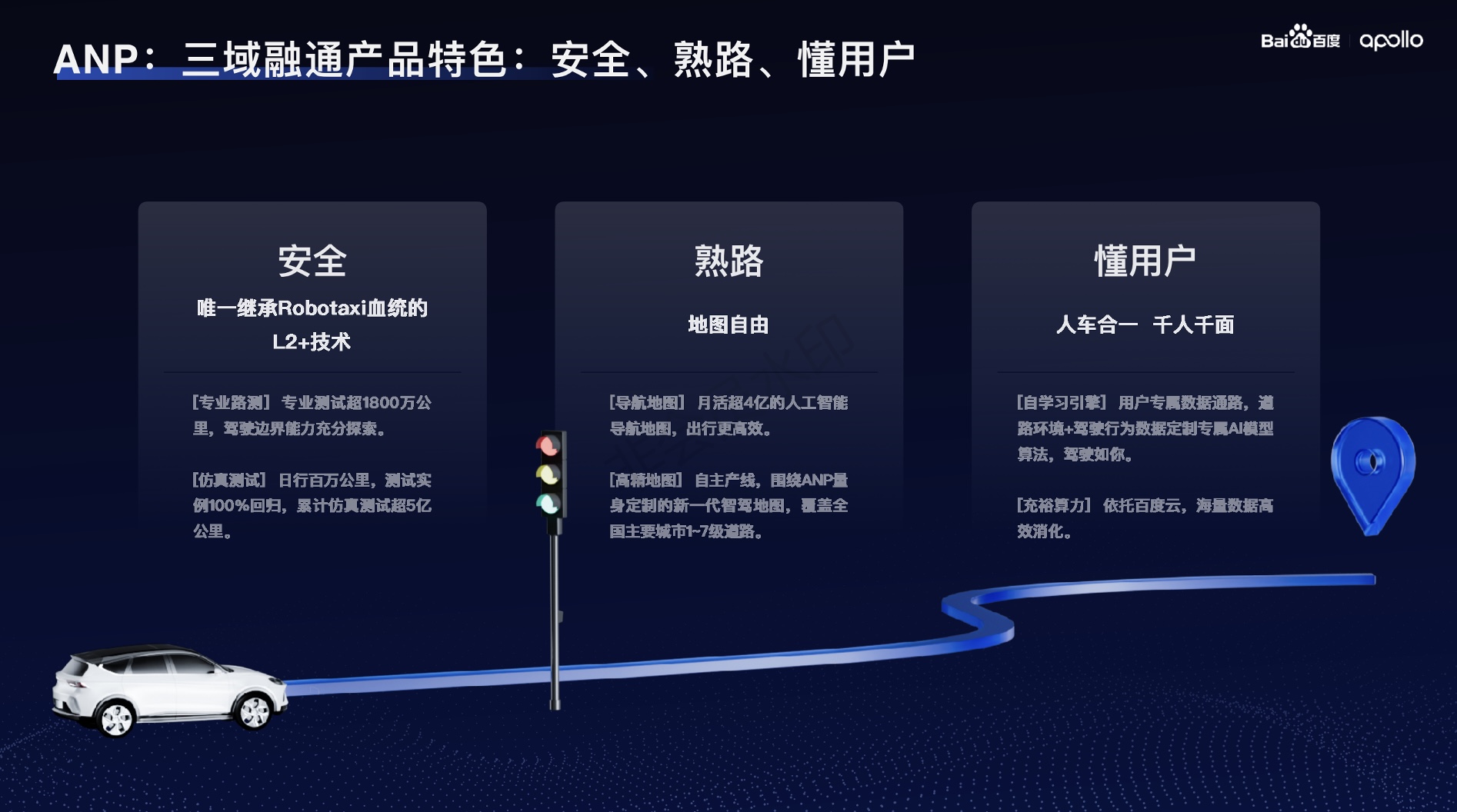
Based on the Apollo Lite visual technology, ANP connects the parking and driving domains through the L4 technology’s dimensionality reduction, high-precision map, and light sensor and calculation power mass production solutions. It provides users with an assisted driving ability that is close to zero intervention from the start to the end-point, allowing the vehicle to seamlessly switch from AVP to city and highway roads, and navigate through on-ramps, loops, highways, and return to city roads, completing point-to-point assisted driving journeys.
It is expected that by 2023, ANP’s flagship product for assisted driving in complex urban road scenarios will be implemented by Baidu Jidu Auto for mass production and launch.### XiaoDu In-car
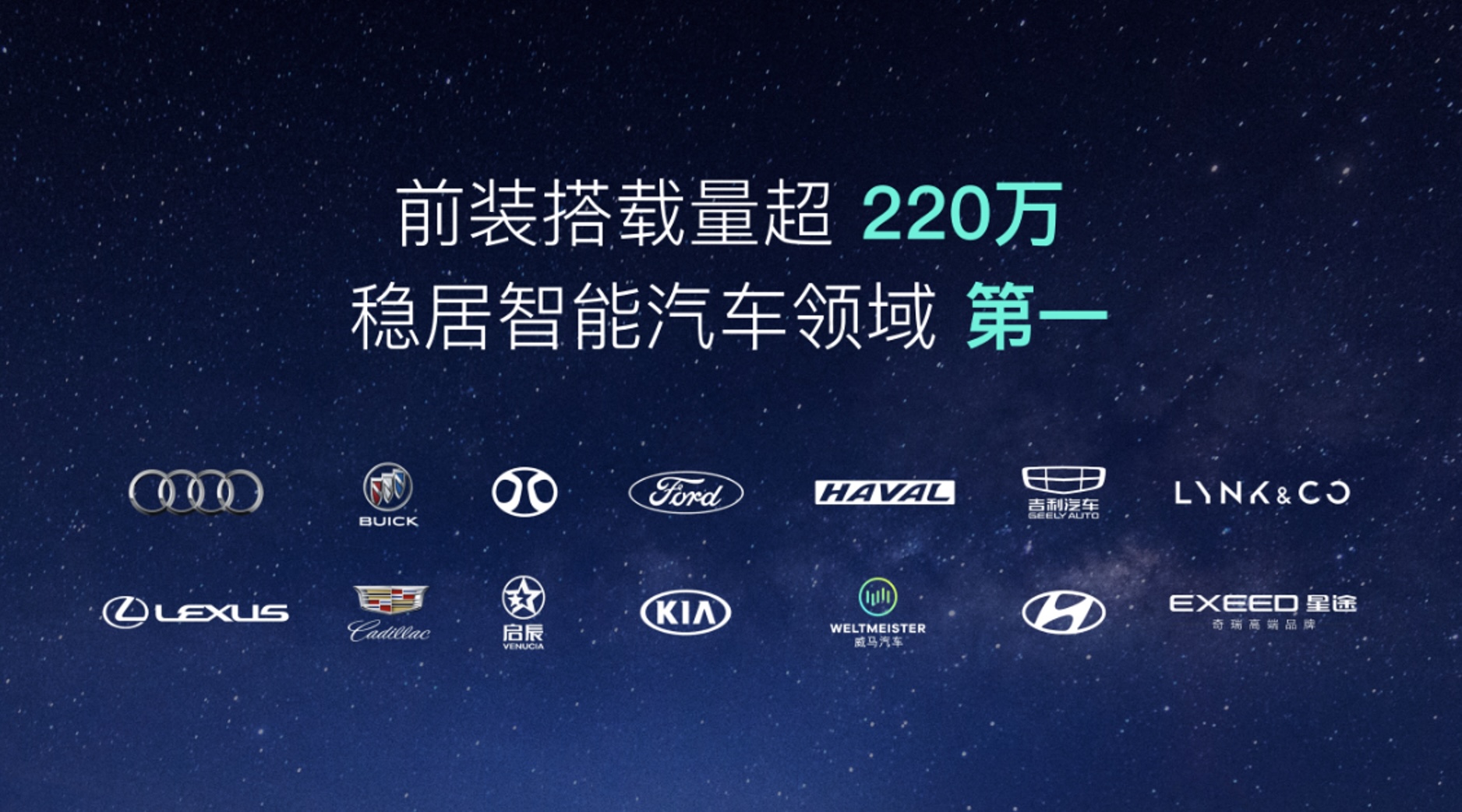
The upgraded XiaoDu In-car relies on Baidu’s AI technology capabilities and can build new interactions through customized virtual 3D assistants, connecting the whole vehicle intelligent recommendation engine with intelligent voice semantics. It creates an open ecosystem of in-car small programs and provides a complete service loop.
Based on flexible and customizable cooperation, XiaoDu In-car has the advantage of leading in-car efficiency. Currently, the front-loaded XiaoDu In-car has a capacity of over 2.2 million, ranking first in the field of intelligent automobiles.
Apollo Open Platform for Autonomous Driving
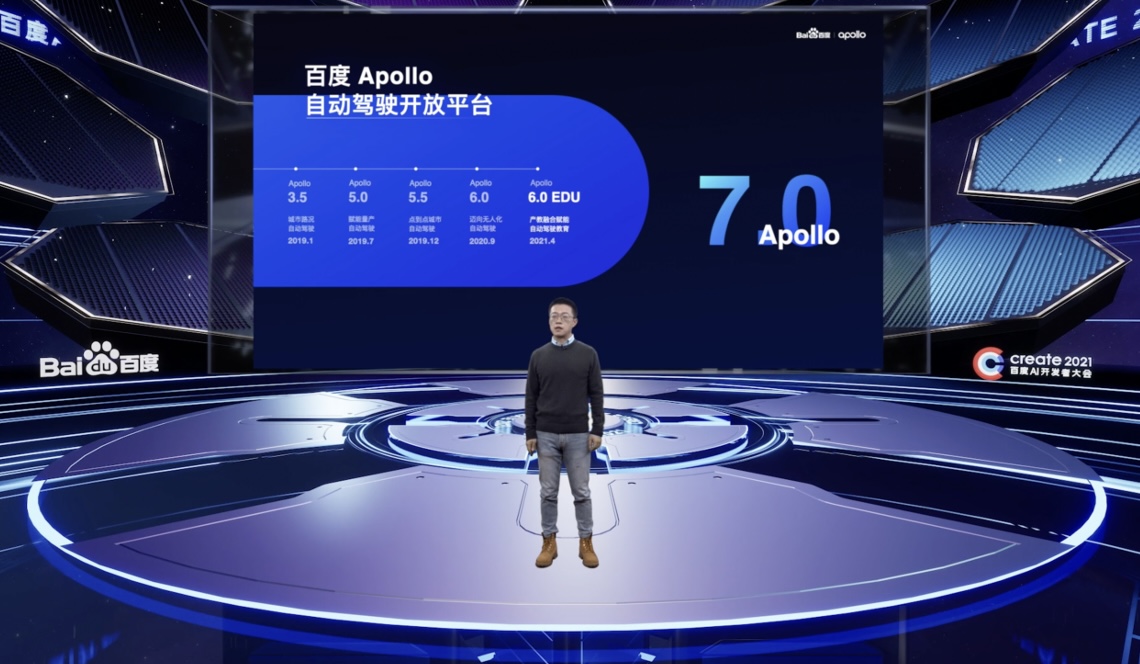
At this conference, Baidu officially released the Apollo 7.0 version of the Apollo open platform for autonomous driving, and the layout of Apollo X in the diversified automobile robot ecology also emerged.
Based on the four open-source platforms of cloud services, open-source software, hardware development, and vehicle certification, Apollo 7.0 provides an upgrade including the all-in-one practice cloud platform Apollo Studio, leading simulation services in the industry, and efficient new models.
Baidu Apollo 7.0
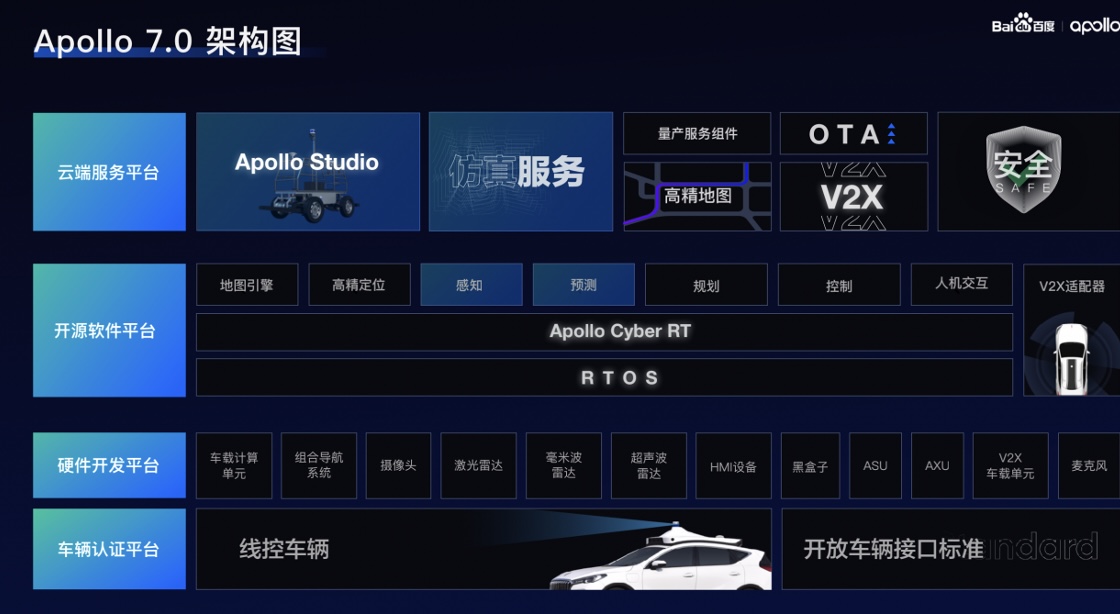
At the cloud service platform level, Apollo 7.0 officially upgraded the “data pipeline” service, which was widely welcomed by developers in version 6.0, to Apollo Studio. It covers the entire process of cloud-based toolchains, from machine to practice, and provides developers with an all-in-one practice platform experience.
At the simulation platform level, Apollo 7.0 introduces the industry’s first PnC reinforcement learning model training and simulation evaluation platform, which has multiple advantages such as realistic data, powerful functions, comprehensive evaluation standards, and expandable architecture, and is expected to provide unified verification standards for reinforcement learning research.
At the open-source software platform level, Apollo 7.0 upgrades the perception and prediction algorithm modules and introduces three deep learning-based models — MaskPillars, SMOKE, and Inter-TNT — which effectively reduce missing and shaking issues.### Apollo X Multi-Vehicle Robotics
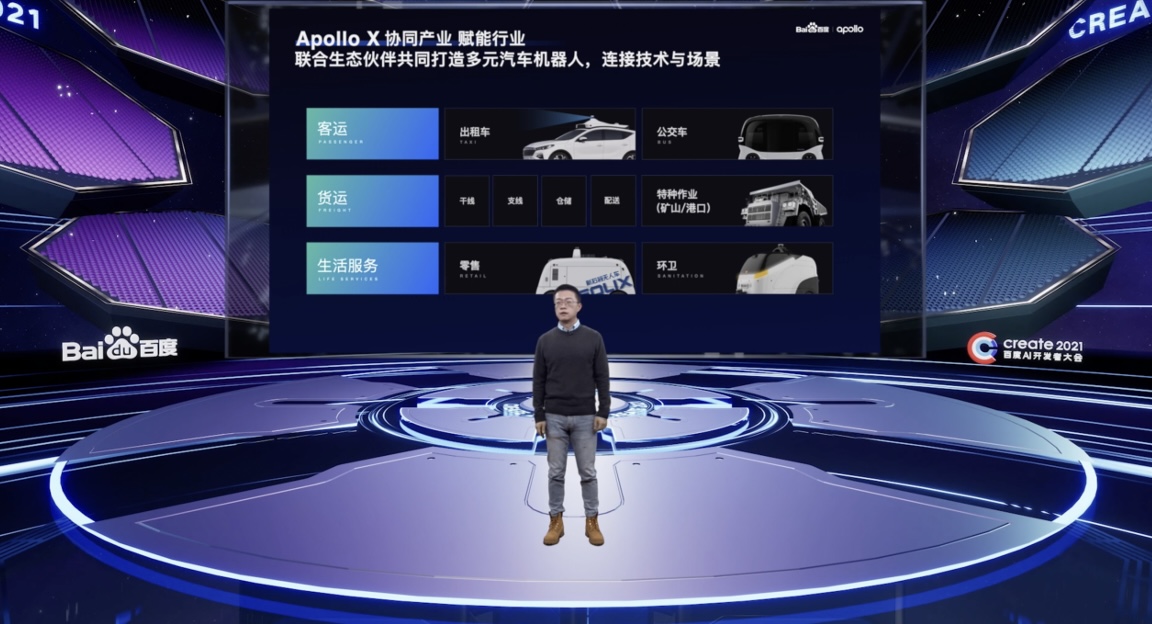
Currently, Baidu Apollo autonomous driving open platform has completed 11 versions iterations and has more than 80,000 developers and over 210 partners in over 135 countries worldwide. With a total open source code of 700,000 lines, it has grown to become the world’s most active autonomous driving open platform.
Apollo 7.0 not only empowers developers but also further expands the capabilities of automotive robot connection technology and scenes. Through collaboration with industries and empowering businesses, Baidu Apollo and its various ecosystem partners collaborate to create “vehicle robotics” spanning various fields such as passenger transportation, freight, and lifestyle services. These cover various scenarios such as passenger cars, buses, long-haul logistics, warehouse distribution, and mining port operations.
“Apollo” bus, “DeepWay” long-haul logistics autonomous driving car, Huaneng E-mine automatic driving mining truck, and Neolithic retail autonomous driving car robot all make their appearance.
As the first intelligent solution to achieve car-road-cloud coverage in the mining industry in China, Baidu Apollo Mining Special Operation Autonomous Driving Car Robot has complete autonomous driving capability and can accurately obtain location and operation status information through the car-road coordination scheme. In the future, it will continue to evolve and support cross-workface entire process operations. The Deepway long-haul logistics autonomous driving car robot will rapidly iterate the autonomous driving capabilities in the high-speed heavy truck scenario through data-driven self-learning. It is expected that Deepway will deploy 1,000 heavy trucks by 2023.
Apollo EDU
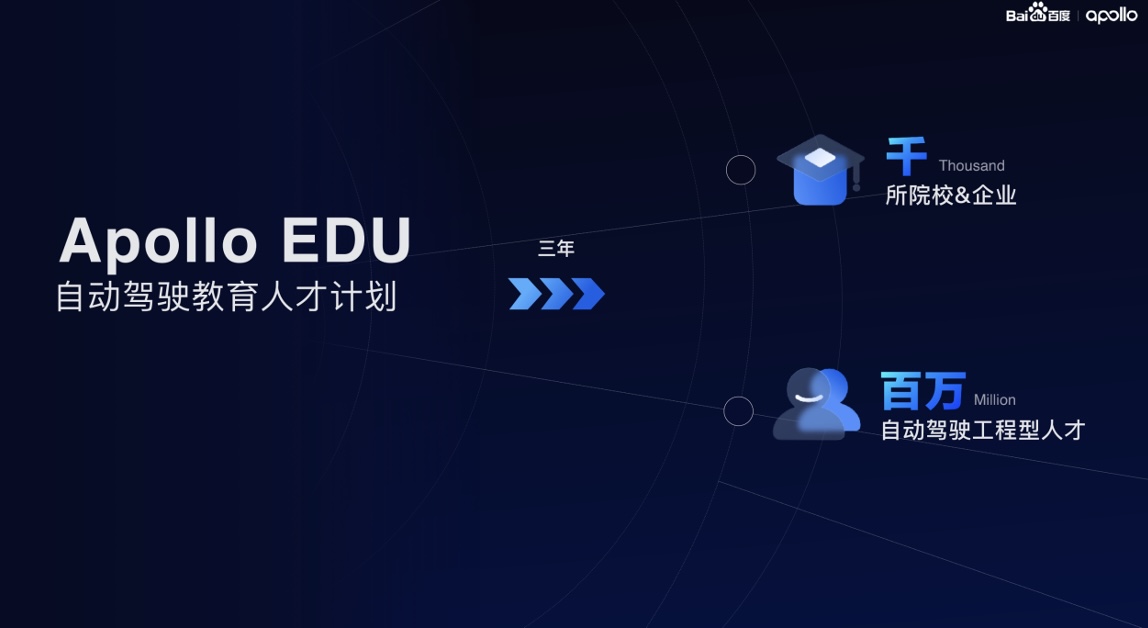
Moreover, Baidu Apollo has announced the Apollo EDU autonomous driving talent education program. This program aims to empower tens of millions of schools and enterprises in the next 3 years and cultivate millions of autonomous driving engineering talents. This will comprehensively cover applied and research-type talents, enabling autonomous driving to empower all walks of life and promote the sustained development of the autonomous driving industry.
🔗 Source: Baidu
This article is a translation by ChatGPT of a Chinese report from 42HOW. If you have any questions about it, please email bd@42how.com.
